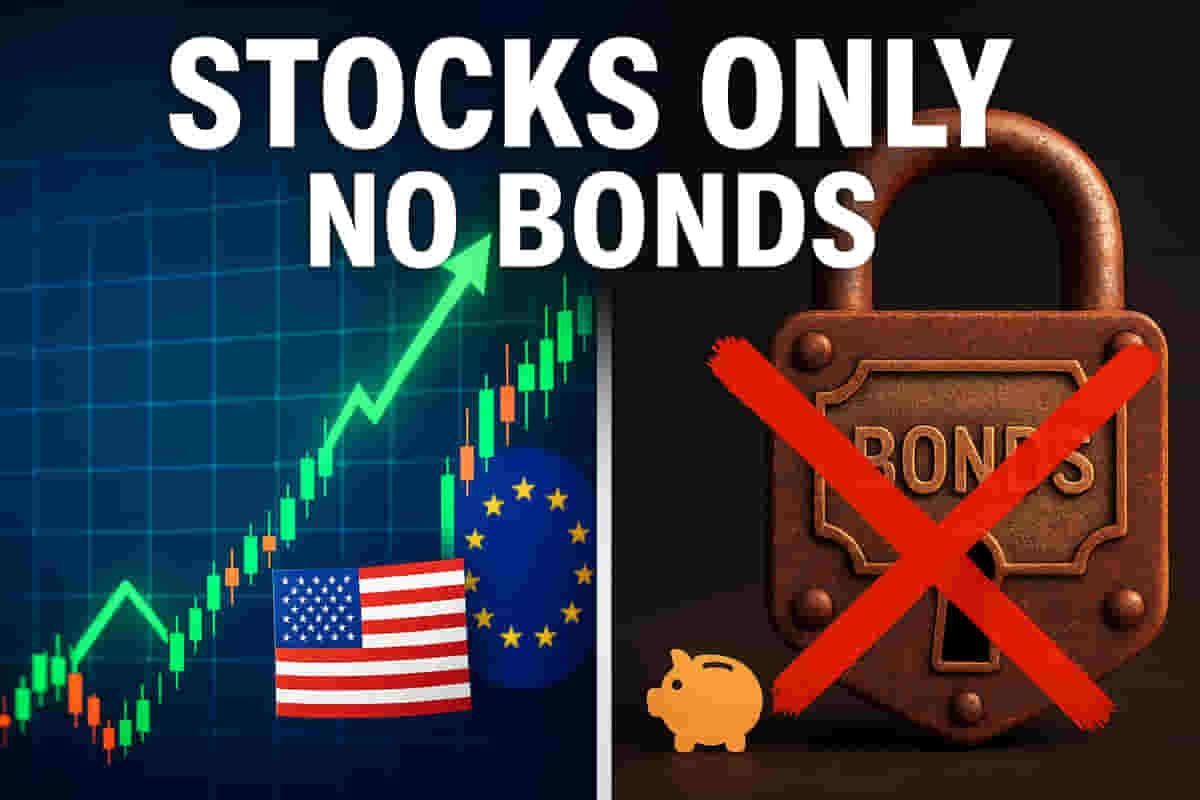Rethinking Retirement: New Research Suggests All Stocks, No Bonds for Savers
Stock Investment Ideas
|
1st November 2025, 1:31 AM

▶
Short Description :
Detailed Coverage :
A new analysis by researchers including Scott Cederburg, a finance professor at the University of Arizona, challenges traditional investment advice by suggesting that retirement savers should hold no bonds at all. The researchers advocate for a portfolio comprised entirely of stocks: one-third in U.S. equities and two-thirds in international equities, for the entirety of an investor's life, even after retirement. This argument stems from an extensive study of stock and bond returns from 39 countries between 1890 and 2023. The core finding is that bonds have historically performed similarly to stocks, offering low returns (0.95% annually after inflation) and poor diversification benefits, while U.S. stocks returned 7.74% and international stocks 7.03%. The researchers suggest this could lead to retirement savers using target-date funds falling short. This advice comes at a time when U.S. stocks, represented by the S&P 500, are trading at very high valuations, about 40.5 times inflation-adjusted earnings, a level not seen in 25 years. The researchers acknowledge that an all-stock portfolio is 'an incredibly risky proposition,' noting that historically, an all-stock portfolio underperformed inflation 12% of the time over 30-year horizons in global markets. Some experts, like Edward McQuarrie, note that while U.S. stocks have outperformed inflation in every 30-year period, they have underperformed bonds in 25% of such periods. The article also illustrates the extreme impact of market timing, showing how investors retiring just before or after a major market downturn can have vastly different outcomes, underscoring the risk of relying solely on stocks. The author personally continues to hold bonds, emphasizing that 'stocks also are far from a sure thing.'
Impact: This news is highly relevant for investors as it questions fundamental principles of portfolio diversification and risk management. The findings, if followed, could lead to significant shifts in asset allocation strategies for retirement planning, potentially increasing portfolio volatility but also potentially enhancing long-term returns. The current high market valuations add a layer of caution, suggesting that while the 'Tina' (There Is No Alternative) sentiment might be prevalent, the risks are substantial. The impact rating for investors globally, including India, is 7/10.
Difficult Terms: TINA market: A term popularized by market strategist Jason Trennert, describing a market environment where investors feel stocks are the only viable investment option due to very low interest rates or perceived lack of alternatives. Bonds: Debt instruments where an investor loans money to an entity (corporate or governmental) which borrows the funds for a defined period of time at a variable or fixed interest rate. Bonds are typically used to raise capital for governments and corporations. Stocks: Securities that represent ownership of a fraction of a corporation. Stocks give holders a claim on the company's assets and earnings. Diversifiers: Investments that tend to move in opposite directions or at different rates compared to each other, helping to reduce overall portfolio risk. Inflation: The rate at which the general level of prices for goods and services is rising, and subsequently, purchasing power is falling. Often measured as a percentage. Target-date funds: A type of mutual fund designed to automatically adjust its asset allocation to become more conservative as a target retirement date approaches. S&P 500: An index of 500 leading U.S. publicly traded companies, widely regarded as the best gauge of large-cap U.S. equities and a benchmark for the U.S. stock market. Valuations: The process of determining the current worth of an asset or a company. In stocks, high valuations often mean investors are paying a premium for earnings, suggesting potential future risk. Bear market: A market condition where the prices of securities are falling and investor sentiment is pessimistic. Bull market: A market condition where the prices of securities are rising and investor sentiment is optimistic. Russian roulette: A dangerous game of chance in which a revolver is spun with a bullet in one chamber and then the trigger is pulled while the gun is pointed at the player's head. Metaphorically, it signifies an extremely risky situation with a high chance of catastrophic failure.